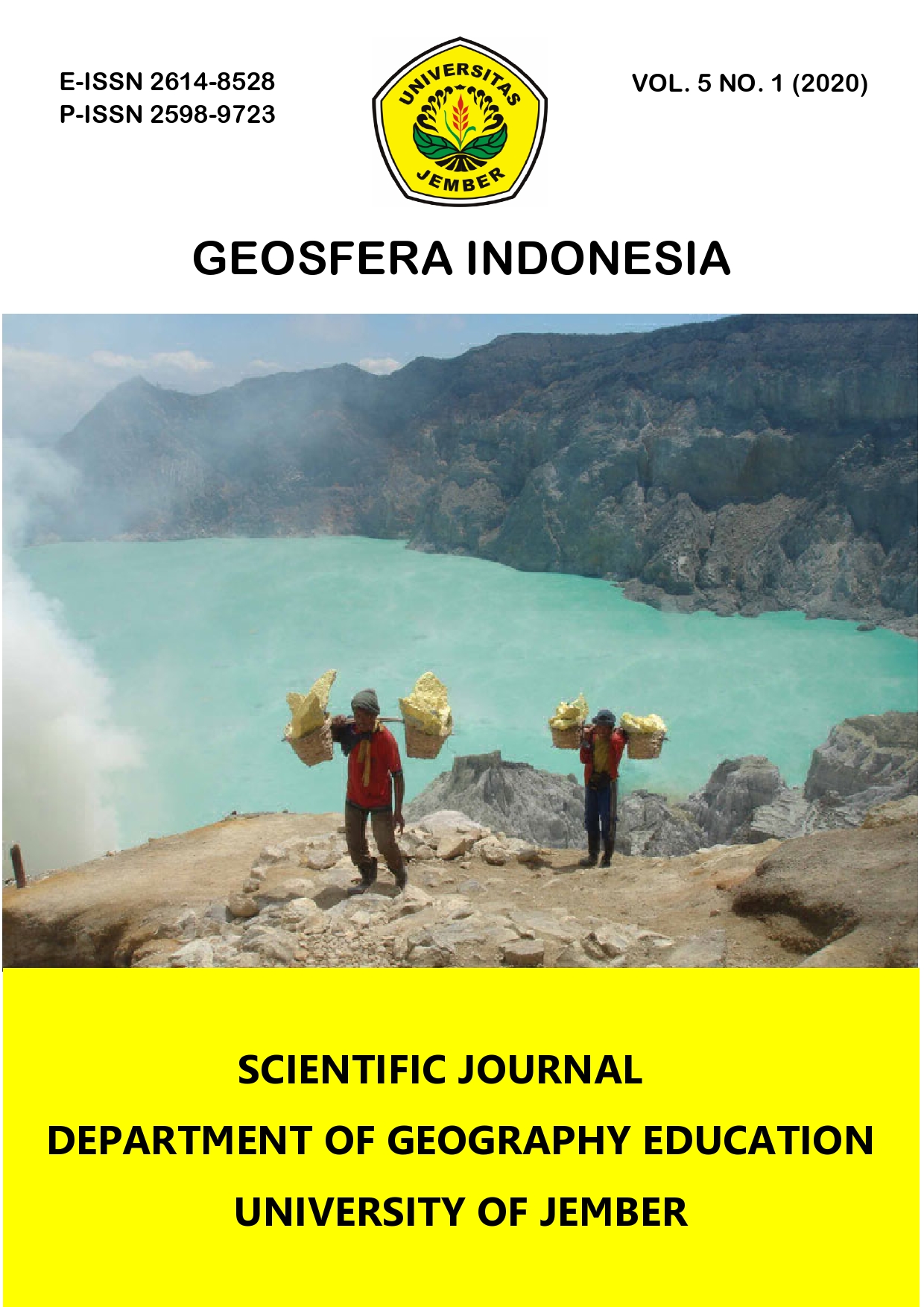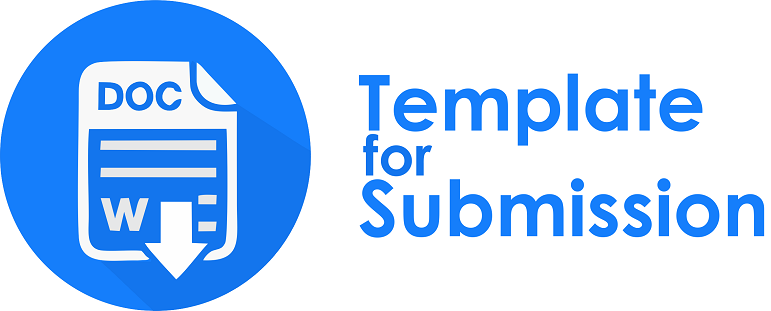Inland Water Transport and Urban Mobility in Ikorodu-Ebutte Ero Route, Lagos, Nigeria
DOI:
https://doi.org/10.19184/geosi.v5i1.14714Keywords:
Urban Mobility, Inland waterways, Transport Services, Sustainable Transportation, Integrated Transport,Abstract
Lagos city has abundant navigable inland waterways which if fully harnessed would help minimise road traffic congestion, pollution and provide low cost means of long distance travel within the city. This study examines inland water transport services on Lagos lagoon focusing on Ikorodu-Ebutte Ero route. Primary data were obtained using structured questionnaires. While, secondary data were sourced from relevant government and private agencies. Data were analysed using descriptive techniques including frequency counts, tables and graphs. The results revealed an inadequate provision of terminal facilities and vessels in the area. It was also found that most (67.3%) of the trips via water transport in the were mainly for work purpose. In addition, low patronage was observed and it was found to be mostly due to comparatively high cost of fares and passenger safety concerns, as indicated by 67.4% and 58.7% of the respondents respectively. Furthermore, high income earners where found to patronise this mode than low income earners. The high frequency of use of water transport by the respondents (71.3% travel by water every day) indicates that, this mode has great potential of being widely adopted, if greater attention is given to its development by both the government and private sector. There is, therefore, a need for more investment in water transportation in the area through the provision of modern infrastructure and vessels.
Keywords: urban mobility; inland waterways; transport services; sustainable transportation; integrated transport.
Copyright (c) 2020 Geosfera Indonesia Journal and Department of Geography Education, University of Jember

This work is licensed under a Creative Commons Attribution-Share A like 4.0 International License
Downloads
References
Ademiluyi, I.A; Fashola, O.K. and Afolabi, O.J. (2016).Analysis of Intra-City Water Transportation in Lagos.International Journal of Innovative Research and Advanced Studies, 3 (8): 246-254
Adeniyi, K. (2017). “Lagos waterways passengers decry safety measuresâ€. Premium Times Online, November, 8, 2017.
Badejo, B. A. (2011).Transportation Removing the Clogs to Nigeria’s Development. Anchorage Press and Publishers: Lagos, Nigeria
Bassey, S. I. & Nsa, M. E. (2018).Problems and Prospects of Developing Inland Water Transportation in Nigeria: The Case of Calabar River. IOSR Journal of Human and Social Sciences, 23 (7): 27-37
Bayode, T. & Ipingbemi, O. (2016). Safety and Operational Characteristics of Water Based Transportation in Lagos State. SCIREA Journal of Traffic and Transportation Engineering, 1 (1): 13-31
Business Day Online (2018).“Lagos commuters lose 75% of weekly working hours to trafficâ€. December 11th, 2018. Retrieved on 06/02/2019 from https://businessday.ng/news/article/lagos-commuters-lose-75-of-weekly-working-hours-to-traffic/
Christodoulou, A., Christidis, P., & Bisselink, B. (2019). Forecasting the impacts of climate change on inland waterways. Transportation Research Part D: Transport and Environment, doi:10.1016/j.trd.2019.10.012
Chukwuma, O. M. (2014).The Characteristics of Inland Water Transport in Nigeria.IOSR Journal of Humanities and Social Science, 19 (3): 119-126.
Dai, B. L., Sheng, N., He, Y. L., Mu, F. H., Xu, J. M., & Zhu, A. F. (2019). Development of an inland waterway traffic noise prediction model considering water surface adsorption and embankment shielding influences. International Journal of Environmental Science and Technology, 16(10), 5927-5936. doi:10.1007/s13762-018-02186-2
Edelman, D.J. (2015).An Environmental Plan for Lagos, Nigeria. International Journal of Social Science, 3 (1): 201-279
Fellinda, L. (2006). World’s Water Transport Needs Further Development. Transport and Development, 1: 68-72
Flugel, S. and Flotterod (2015).Traffic assignment for strategic transport model systems. Paper presented at International Transport Economics Association (ITEA) conference, June 17-19, 2015, University of Oslo, Oslo, Norway.
Gray, L. (2004).An Examination of the Problems of Water Transportation in Old Degama Province.Journal of Waterways, Africa, 33: 20-26
Hossain, N. U. I., Nur, F., Jaradat, R., Hosseini, S., Marufuzzaman, M., Puryear, S. M., & Buchanan, R. K. (2019). Metrics for assessing overall performance of inland waterway ports: A bayesian network based approach. Complexity, 2019 doi:10.1155/2019/3518705
Hoyle, B.S. (1993). Water Transport and Urban Development: Some Geographical Perspectives and Propositions. Geojournal, 31 (4): 439-448
Iamtrakul, P., & Wongbumru, T. (2019). Exploring eco-friendly travel towards sustainable water transport in bangkok. Paper presented at the IOP Conference Series: Earth and Environmental Science, , 398(1) doi:10.1088/1755-1315/398/1/012014
Iamtrakul, P., Raungratanaamporn, I., & Klaylee, J. (2018). Contribution on water transportation for resilient and sustainable lowland cities. Lowland Technology International, 20(3), 341-350
International Association of Public Transport (2013).Waterborne Transport, a Unique Contribution to Enhancing Mobility for Cities on Water. A Position Paper of Waterborne Transport Committee May 2013.
Kurniasari, E. and Pramesty, D.A. (2018).The Effects of Vehicle Intensity in Sumbersari Jember Regency.Geosfera Indonesia, 3 (3): 50-58
Åapko, A., & Panasiuk, A. (2019). Water tourism as a recipient of transport services on the example of szczecin. Paper presented at the Transportation Research Procedia, , 39 290-299. doi:10.1016/j.trpro.2019.06.031
Ndikom, O.B.C. (2013). A Critical Assessment of the Inland Waterways Operation and Management on the Development of the Nigerian maritime Industry. Greener Journal of Environmental Management and Public Safety, 2 (2): 99-107
Nigerian Bureau of Statistics (2013).Annual Abstract of Statistics, 2011.Federal Government of Nigeria, Abuja. Retrieved on 11/06/19 from http://istmat.info/files/uploads/53129/annual_abstract_of_statistics_2011.pdf
Nigerian Bureau of Statistics (2018). 2017 Demographic Statistics Bulletin, May.
Nwakunor, G.A., Ajeluorou, A. and Salau, G. (2016). Lagos waterways: A hidden treasure untapped. Retrieved on 06/11/2018 from http://m.guardian.ng/features/weekend/lagos-waterways-a-hidden-trasureuntapped/
Ogunbajo, A.B., Akinpelu, T.A. and Odubela, C.A. (2017).The Prospects and Problems of Water Transportation in Lagos Metropolis.LASPOTECH Journal of Scientific, Engineering and Technology Research, 1 (1): 1-12
Punch (2019). 12 bodies recovered in Lagos boat mishap, five still missing. July 2nd, 2019. Retrieved on03/09/2019 from https://punchng.com/lagos-boat-accident-12-bodies-recovered-five-still-missing/
Tanko, M., Cheemarkurthy, H., Hall Kihl, S., & Garme, K. (2019). Water transit passenger perceptions and planning factors: A swedish perspective. Travel Behaviour and Society, 16, 23-30. doi:10.1016/j.tbs.2019.02.002
Tannum, M. S., & Ulvensøen, J. H. (2019). Urban mobility at sea and on waterways in norway. Paper presented at the Journal of Physics: Conference Series, , 1357(1) doi:10.1088/1742-6596/1357/1/012018
Tobias, M. S. G., Ramos, R. A. R., & Rodrigues, D. S. (2019). Use of waterway transport integrated to urban transportation systems in amazonian cities: A vision of sustainable mobility. WIT Transactions on Ecology and the Environment, 238, 615-625. doi:10.2495/SC190531
Wiercx, M., van Kalmthout, M., & Wiegmans, B. (2019). Inland waterway terminal yard configuration contributing to sustainability: Modeling yard operations. Research in Transportation Economics, 73, 4-16. doi:10.1016/j.retrec.2019.02.001



